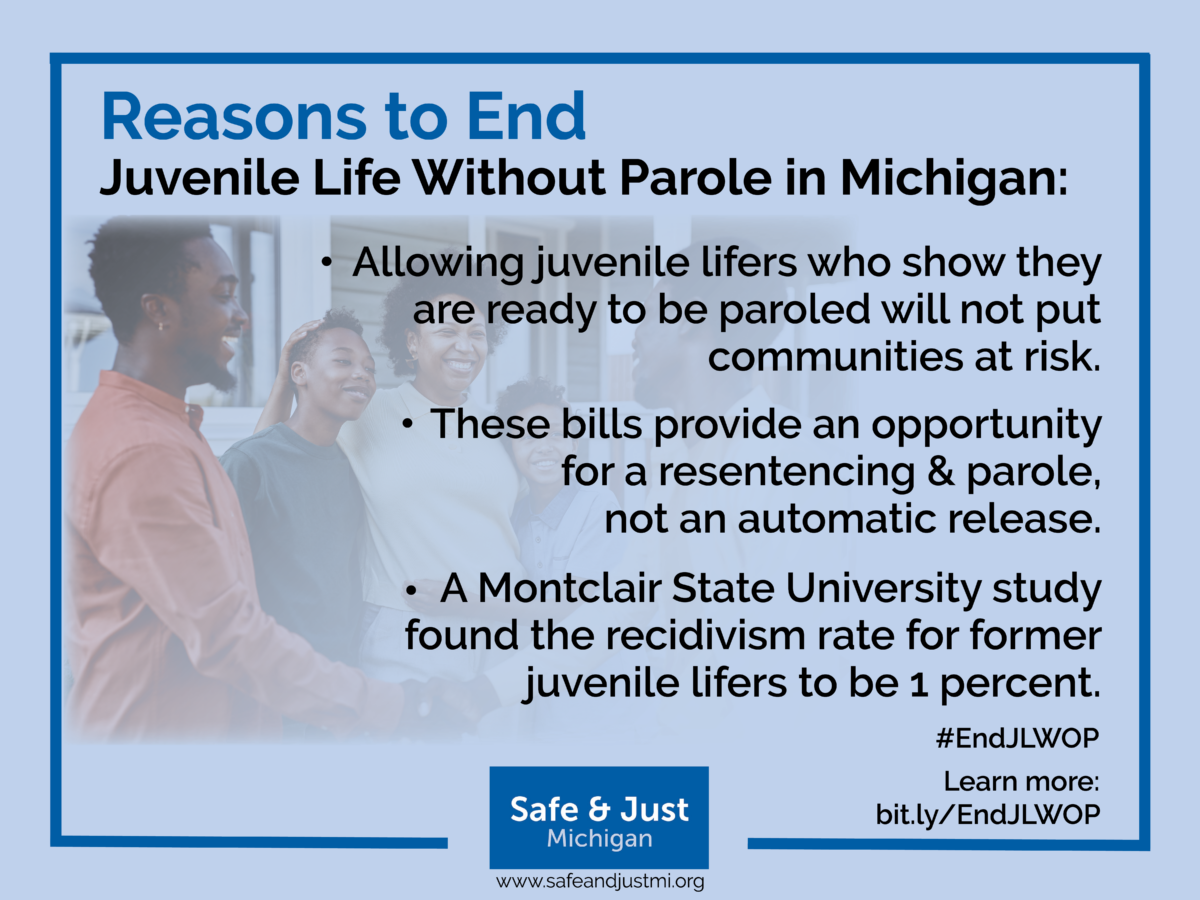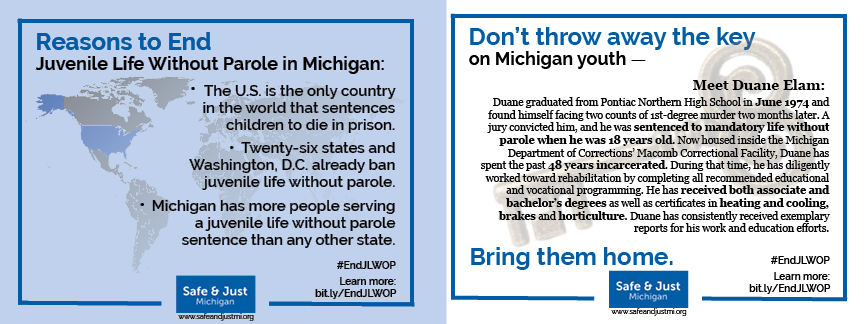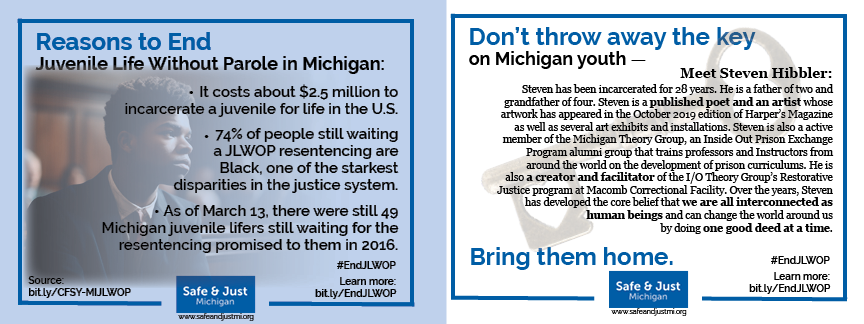The Michigan Legislature is considering a proposal to end juvenile life without parole in Michigan. Fully half the states and Washington, D.C., have already taken this step, banning the practice of sending children to prison to die, and another seven states currently have no one serving such a sentence. In 2012, the U.S. Supreme Court declared that mandatory life without parole sentences for juveniles were unconstitutional — an opinion echoed by the Michigan Supreme Court in 2022. However, Michigan courts still may apply these harsh sentences on a discretionary basis.
Since the 2012 Supreme Court ruling, many of Michigan’s juvenile lifers have had resentencing hearings, and several of those people have come home. However, others have not yet had those hearings, or were returned to prison for either a continuing sentence of years or a life sentence.
At this point, Michigan has more people serving a juvenile life without parole sentence than any other place in the world. That’s because no other country on the planet hands out such stiff sentences to youth, and among U.S. states, Michigan has the dubious distinction of having the most juvenile lifers still incarcerated. This is partly because Michigan has dragged its feet on resentencing for people currently serving juvenile life without parole sentences, and because we continue to send more youth to prison for the rest of their lives.
There’s no need for this.
We know that communities are not safer when we lock away young people for the rest of their lives. Current research on neuroscience informs us that adolescent brains aren’t yet fully developed, and they don’t have the same decision-making abilities as adults. This means that young people are capable of learning from their mistakes and growing.
Furthermore, experience shows us that the former juvenile lifers aren’t a threat when they return home. Instead, they have become social workers, community organizers, new parents, entrepreneurs, truck drivers, factory workers, volunteers and more. One recent study from Montclair University found a recidivism rate of just 1 percent among former juvenile lifers in Philadelphia, compared to an average US recidivism rate of 50 percent or more, depending on how the rate is measured.
It’s almost a cliché to say that our children are our future, but it’s true. We leave everything to the younger generations. We can’t give up on them by locking them in a cell and throwing away the key.
You can get to know some of the juvenile lifers still waiting to come home below. As part of our effort to end juvenile life without parole, we asked them to send us a few words about themselves, including how they have changed and what they value in life. Those biographical statements have been paired with facts about juvenile life without parole sentences and the reasons to end them to create postcards that we have been sharing.
In particular, we would like to thank Duane Elam, Steven Hibbler, Robert Potts, Michael Chapple, Ricardo Ferrell and John English who shared their life stories for this project and for work related to Second Look.
As Michigan’s lawmakers weigh the proposal to end juvenile life without parole, we urge you to learn about this harsh sentence and the reasons for ending it. And then we ask you to inform others and speak up. Let your friends and family know that Michigan is No. 1 in the world for sending children to die in prison — but we don’t have to be. And tell your legislators that there are better ways to reach young people who have done harm and help them find a better future.
~ Barbara Wieland
Senior Communications Specialist





